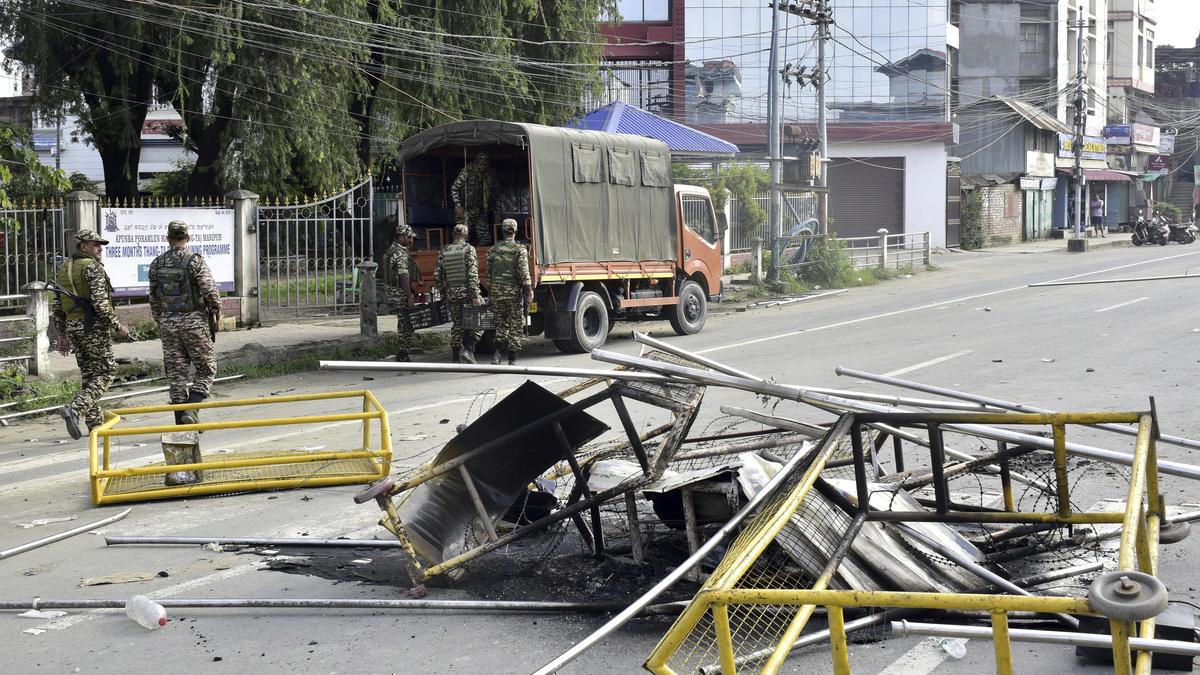Manipur stands ablaze once again, with the cries of its people echoing through the valleys. The streets have erupted in fury following the arbitrary arrest of Arambai Tenggol leader Kanan Singh and four others. Protesters are rising up, declaring they will not back down until justice is served. Prohibitory orders? Curfews? Internet shutdowns? None of it matters anymore—the people have awakened, and no amount of repression can crush their demand for justice.
From Khurai Lamlong in East Imphal to the districts of Thoubal and Kakching, the fire of resistance is spreading. On Monday night, security forces unleashed a barrage of tear gas and rubber bullets against unarmed civilians. A civilian vehicle was set ablaze during the chaos—conveniently blamed on the protesters to fuel fear and justify more force.
But we are not afraid. We will not be silenced.
In Tera, Imphal West, gunfire erupted when unidentified individuals shot at paramilitary forces clearing roadblocks. Authorities claim their operations were obstructed—but who is truly provoking whom? Who is really being oppressed? The people know the truth all too well.
In Bishnupur’s Nambol area, two police officers sustained minor injuries during a standoff with angry protesters. An FIR was swiftly filed against the demonstrators. Yet again, the state is quick to criminalize dissent but turns a blind eye to its own brutality. The lives of the people are reduced to footnotes—if acknowledged at all.
Today, Manipur is not witnessing a “restoration of order,” but rather a full-scale crackdown where the state’s machinery of violence and imprisonment is being used to suppress resistance. And yet, even under this pressure, life continues. Imphal’s markets were open Tuesday morning—a quiet, determined declaration that the people will survive, and the struggle will go on.
Meanwhile, in the safe corridors of New Delhi, the Indian government holds what it calls the “first round of political dialogue” with Kuki-Zo armed groups. But beneath the surface of negotiation and peace talk lies a hypocritical attempt to mask selective justice and ground-level oppression. Reasonable demands—like the removal of Meitei militant camps from Sadar Hills—remain unanswered.
What kind of dialogue is held while people bleed, while others are jailed and silenced? When tear gas still chokes the streets of Imphal, this so-called roadmap to peace is nothing but a smokescreen.
Manipur does not need more repression disguised as peace. It needs real justice.And real justice can only come through equality, dignity, and the will of the people.
—— Free Kumar

Yes